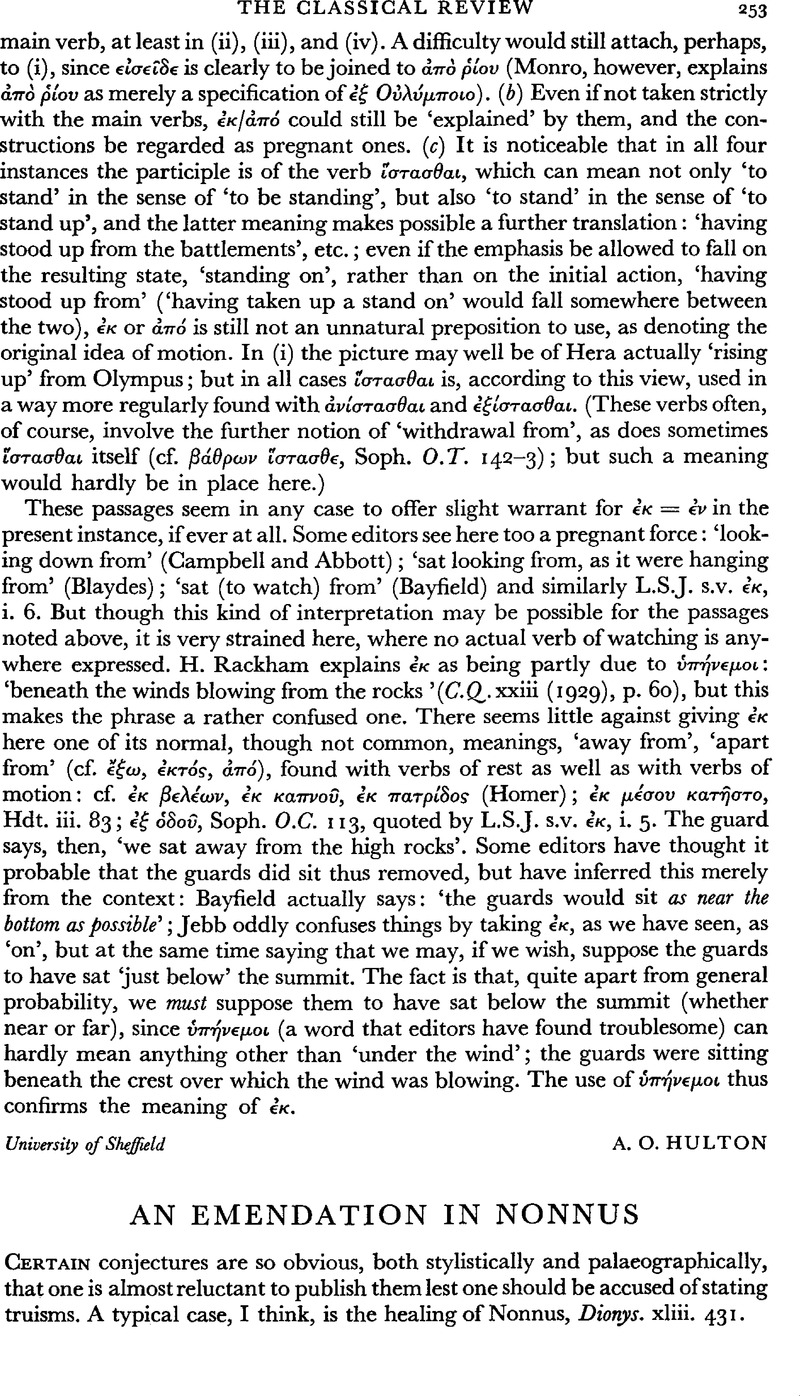No CrossRef data available.
Published online by Cambridge University Press: 27 February 2009

page 254 note 1 Castiglioni, followed by Keydell, conjectured θαλ⋯σσῃ.
page 254 note 2 By way of anticipation, we might as well already observe that in Il. i. 497, ἠε;ρ⋯η δ' ⋯ν⋯βη μ⋯γαν οὐραν⋯ν Οὔλυμπ⋯ν τε Nonnus very probably took ἠερ⋯η to mean ‘aëria’; cf. Thes., s.v. ἠ⋯ρις, 109 c.
page 254 note 3 This is precisely what, e.g., Eros does at the beginning (xliii. 438 f.) and towards the end (xlviii. 613–18) of the Aura episode.
page 255 note 1 Cf. xlviii. 651, where Dionysus furtively disappears,⋯ν⋯μοισιν ⋯πιτρ⋯Φας λ⋯χος Αὔπρης; ⋯ν⋯μοιοιν⋯Φας corresponds to λ⋯πε π⋯ντῳ in xliii. 428. Aura is left to her element, the winds, because the marriage has been consummated on the mountains and in the open air, and not in a nuptial chamber (cf. xlviii. 893–4), exactly as happened in Nicaea's case (xvi. 285 ff.; cf. xlviii. 811 ff.). Whether Aura's words ἠερ⋯θεν γ⋯μος οὑτος (xlviii. 892) refer to the motif developed in xlviii. 893–5 (cf- also 919 and 922) or to the fact that Dionysus had come to her flying, as he was wont, ⋯ῷ πτερ⋯εντι πεδ⋯λῳ, is not possible to establish.
page 255 note 2 Some later epic poets (amongst them, as we have already noted, Nonnus) must have interpreted ἠ⋯ριος = per aërem gradiens, volans in Il. i. 497 and iii. 7, cf. Thes., s.v.
page 255 note 3 The Aristotelian division of ζῷα into ⋯⋯ρια, νηκτ⋯ and χερσαῖα occurs, as a literary topos, e.g. in Opp., Hal. iii. 202 f., Cyn. i. 48, A.P. vi. 180 and 181.